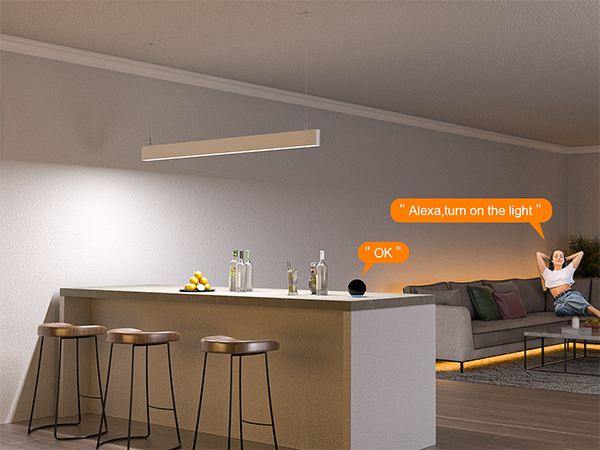The Evolution of Industrial Lighting
If this is interesting to you, why not voice-activated track lighting.Industrial spaces have long relied on traditional lighting solutions to illuminate their vast environments. However, with the advent of voice-activated track lighting, a new era of illumination has dawned upon the industrial sector.

Enhancing Efficiency and Productivity
One of the key benefits of voice-activated track lighting in industrial spaces is its ability to enhance efficiency and productivity. By allowing workers to control the lighting with simple voice commands, tasks can be performed with greater ease and accuracy.
The Role of Smart Technology
Smart technology plays a crucial role in the implementation of voice-activated track lighting systems. These systems are equipped with sensors and microphones that can detect voice commands and adjust the lighting accordingly. This level of automation not only saves time but also reduces energy consumption.
Creating a Safer Work Environment
In addition to improving efficiency, voice-activated track lighting also contributes to creating a safer work environment. By allowing workers to adjust the lighting without having to physically interact with switches or controls, the risk of accidents and injuries is significantly reduced.
Future Prospects and Sustainability
The future of industrial lighting lies in the hands of voice-activated track lighting. As technology continues to advance, these systems will become more sophisticated and energy-efficient, paving the way for a more sustainable industrial sector.
Integration with IoT
One of the most exciting prospects for voice-activated track lighting is its integration with the Internet of Things (IoT). By connecting lighting systems to a network, industrial spaces can achieve greater control and automation, leading to further improvements in efficiency and sustainability.
Environmental Impact
With a growing emphasis on sustainability, voice-activated track lighting offers industrial spaces a way to reduce their carbon footprint. By optimizing energy usage and minimizing waste, these systems contribute to a greener and more environmentally friendly future.



